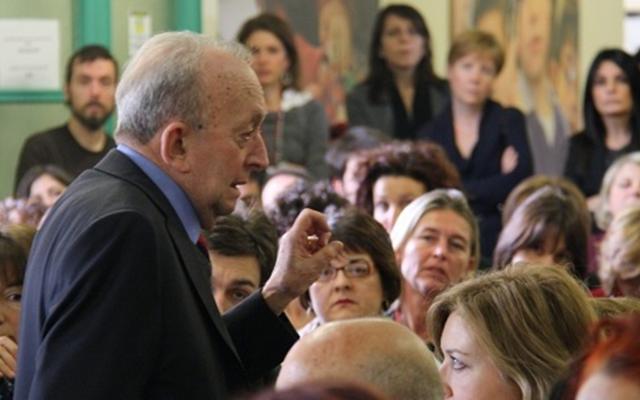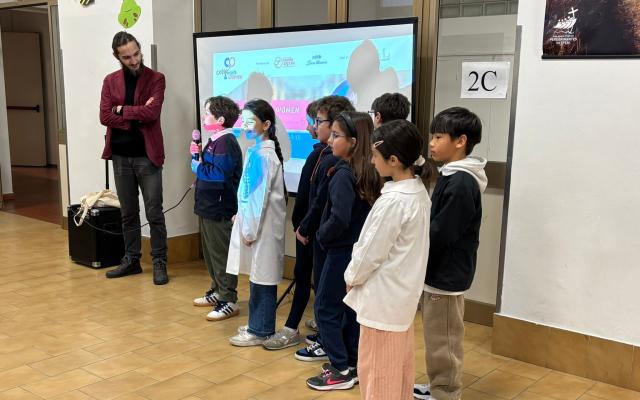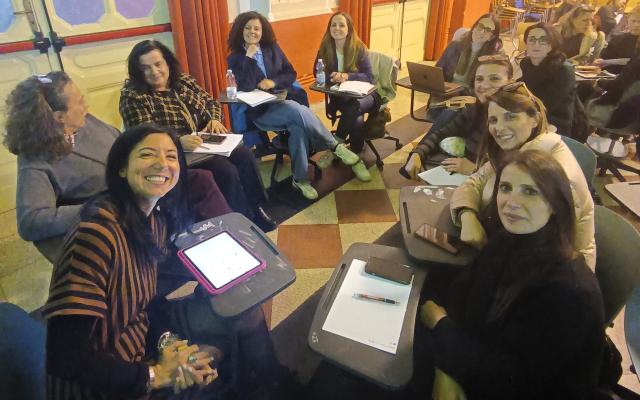AI between humanities, cultural heritage and three urgent challenges
The Venetian leg of the DisclAImer. Last warnings before the revolution tour brought to Ca' Foscari University an in-depth reflection on the challenges that artificial intelligence poses to contemporary society. The event, held yesterday, Monday 10 November, was divided into two parts: a challenge dedicated to the three major issues of AI and an afternoon discussion on the opportunities that these technologies open up in the cultural heritage sector. The Fondazione Mondo Digitale, as knowledge partner, contributed to the scientific design of the morning challenge.
Three challenges for AI: opacity, neutrality, stupidity
The morning session, entitled “Opacity, neutrality, stupidity: three challenges for artificial intelligence”, involved students in a participatory workshop of critical reflection. The three keywords identify three weaknesses of today's most widely used neural models: they are difficult to interpret, subject to bias and vulnerable to surprising errors, despite their apparent power. To address these issues, participants were divided into three multidisciplinary groups. This approach, as explained by Prof. Sebastiano Vascon, was a cornerstone of the entire activity: ‘Within each group, there are people from different backgrounds, with different CVs and experiences. We have the computer scientist, the AI expert and the humanist: everyone brings their own vision, their own point of view on these issues.’ This was a necessary choice, because the complexity of AI cannot be understood from a technical perspective alone. Martina Mattioli also points this out: ‘These are three problems that afflict artificial intelligence and cannot be discussed from a technical point of view alone. It is important to be able to collaborate with people from different disciplines.’
Themes that emerged from the discussion
- Opacity. Artificial intelligence remains a difficult system to decipher. “It is impossible to understand their behaviour exactly: they are not very transparent, they are opaque,” observed Prof. Marcello Pelillo. This is a characteristic that calls into question the trust we place in systems that we use more and more often.
- Neutrality. AI models are never truly neutral, because they are trained on large amounts of data that inevitably contain biases, which are bound to be reflected in the systems' responses.
- Stupidity. Despite their complexity, AIs can be easily fooled and make gross errors: hence the provocative definition of “stupidity”.
In this regard, a particularly effective reflection came from the working group dedicated to the third challenge. Francesco Silingardi, one of the participating students, gave a contemporary take on a famous Socratic aphorism: “We concluded our work by recalling a famous idea attributed to Socrates: man knows that he knows nothing. Artificial intelligence does not know that it knows nothing”.
A brilliant summary that highlights how AI systems, however sophisticated, do not (yet) possess any form of self-awareness of their own limitations.
AI and cultural heritage: a dialogue between research, art and technology
In the afternoon, the Silvio Trentin Lecture Hall hosted the meeting ‘AI and Cultural Heritage’, a discussion dedicated to the intersection between technological innovation and artistic heritage.
The introduction was given by:
- Tiziana Lippiello, Rector of Ca' Foscari University of Venice
- Alessandra Poggiani, Director General of Cineca
- Vincenzo Di Nicola, Head of the Artificial Intelligence Fund at CDP Venture Capital
This was followed by presentations by Marcello Pelillo and Alessandro Codello, who offered a critical reading of how AI can contribute to new forms of interpretation and enhancement of cultural heritage, creating a bridge between the humanities and computational sciences.
The dialogue then broadened to include the world of business and institutions, with the participation of:
- Pier Luigi Dal Pino, Head of Microsoft Global Affairs, Europe South
- Giuseppe Perrone, AI & Data Consulting Leader at EY Italia
- Giuseppe Venier, CEO of Umana
- Elisa Zambito Marsala, Head of Education Ecosystem and Global Value Programmes, Intesa Sanpaolo
The day ended with an interview with Valentino Catricalà, curator and artistic director, member of the Advisory Board of the ZKM - Centre for Art and Media in Karlsruhe, who brought the perspective of the contemporary art world to the cultural transformation underway.



